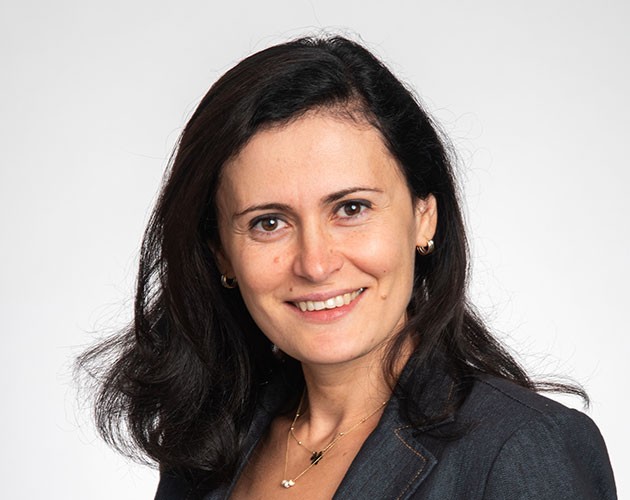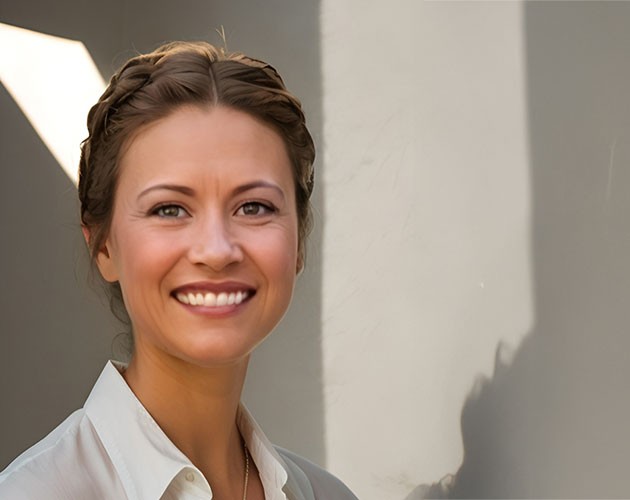Committed to a CLS Career

Mary Joann (MJ) Aguillon’s strength and resistance are palpable—even over email.
Couple that with a commitment to health care and serving veterans, and there’s nothing that can stop MJ—not even a recent life-changing diagnosis of having Hodgkin’s Lymphoma.
In fact, MJ tells me, it was both our Clinical Laboratory Scientist Preparatory Program and acceptance and completion of San Francisco State University’s Clinical Laboratory Scientist post-graduate program that “actually taught me about this cancer and prepared me for what I needed to know going forward with my treatments.”
Dedicated to the Profession
MJ is not one to be deterred in attaining her health care career goals. It began by receiving her bachelor’s degree in kinesiology from Sacramento State University. This transitioned to working full time as a medical technician at the San Francisco VA Medical Center, where she drew blood and processed samples from patients.
But she wanted to have a deeper impact in the profession. To do so, MJ knew she’d have to go back to school.
“I felt that going back to school in my late 20s was impossible,” MJ admits, “and I wanted to give up so many times.”
The idea of working full time while taking courses seemed daunting, but MJ was up to the challenge.
I chose UC Berkeley Extension’s CLS program because it offered the required prerequisites I needed, and they were available both at evening and online, which made it easier for me to continue working during the day.
Eyes Toward a CLS Career
Becoming a clinical laboratory scientist (CLS) is the perfect fit for MJ—not only does it elevate her work as a medical technician, but there’s ample room for growth in the field. To be sure, the Bureau of Labor Statistics projects a 10-percent job growth from now until 2032.
Moving forward on this new career path, MJ received her CLS trainee license and then got to work to become a competitive applicant for her ideal CLS Training Program at San Francisco State University (SFSU).
And that’s where our Clinical Laboratory Scientist Preparatory Program comes into play. For MJ—and all students desiring to ultimately attend a competitive CLS training program—registering for our program was a no-brainer: She could take basic science and upper-division science courses to fulfill the prerequisites needed to apply to a CLS training program.
“I chose UC Berkeley Extension’s CLS program because it offered the required prerequisites I needed, and they were available both at evening and online, which made it easier for me to continue working during the day,” MJ recalls. “It was my goal to use those CLS courses toward my application to the post-graduate CLS Program at San Francisco State University.”
Another unique aspect of our program is that all courses are available and accessible to the general public and are not subject to any enrollment restrictions. Other institutions may prioritize course enrollment to students who have matriculated into their degree programs.
Bonus #2: She could take many of the courses online, allowing her to continue working while taking actionable steps toward achieving her CLS goals.
“It was difficult taking classes after work every day,” MJ confides, though proud of her enduring commitment. “For about two years, I took one to two classes a semester while commuting an hour to and from work. I did struggle to stay focused during my evening classes, but my instructors were very understanding of my work schedule and accommodating to my learning speed and needs. It was great meeting other classmates in these courses who were on the same post-graduate career path as me. I was able to experience classes at different UC Berkeley Extension sites, including both at Berkeley and the one in downtown San Francisco.”
But, again, due to MJ’s strength, resilience and an eye toward her future, she committed herself to her studies in:
Hematology
Immunology
Medical Microbiology
Biochemistry
Quantitative Analysis: Applications in Clinical Chemistry
Physics II
And ultimately completed the program in May 2020.
My Extension courses definitely helped me understand the necessary material once I was in SFSU’s program.
Attaining Goals
In January 2021—just six months after completing our program—MJ made the next major step toward her career goals: applying to and being accepted into the CLS training program at San Francisco State University!
“My Extension courses definitely helped me understand the necessary material once I was in SFSU’s program,” MJ enthuses. “I had a general understanding and foundation of CLS knowledge that SFSU’s program was able to elaborate and build upon.”
During the year-and-a-half program at SFSU, MJ was diving deep into the curriculum, thanks to having a solid foundation from completing our program.
”I was studying hematology, immunology, chemistry, serology, blood banking and microbiology,” MJ recalls. “We studied these topics one section at a time, depending on how much material was necessary for our internship. Each subject involved a lecture and a laboratory. After five months of didactic learning, I interned at the San Francisco VA Medical Center for nine months before graduating and taking my board exams.”
Professionally, I’ve had many doors open up for me since I graduated because CLS jobs are still in high demand.
With her Medical Laboratory Scientist certification from American Society for Clinical Pathology in hand, as well as her Clinical Laboratory Scientist certification from the CA Department of Public Health, MJ is still committed to her work at the U.S. Department of Veterans Affairs in San Francisco—but this time as a clinical laboratory scientist in the Microbiology department.
“On a daily basis,” MJ describes, “I grow bacterial, fungal and AFB cultures from patient samples and perform various laboratory tests to identify the organisms infecting the veterans and to determine which antibiotics they are resistant or susceptible to. In addition, my Microbiology department runs various PCR testing for respiratory and gastrointestinal diseases. I found that I am able to put the lessons learned in class to my current work every day.
“Completing UC Berkeley Extension’s program and SFSU’s program was personally a great achievement for me,” MJ adds. “Finishing both programs was life-changing. Professionally, I’ve had many doors open up for me since I graduated because CLS jobs are still in high demand. I even worked a second job as a part-time CLS at LabCorp, but my priority will always be working for the veterans and my own personal health.
“My advice to a student starting the program is to not give up. Everything you’re doing now is toward a bigger purpose in the end. Know that if you are struggling, you are not alone. Reach out to your instructors when you feel behind or need assistance. Reach out to other students in your class to start study groups—you got this!”


